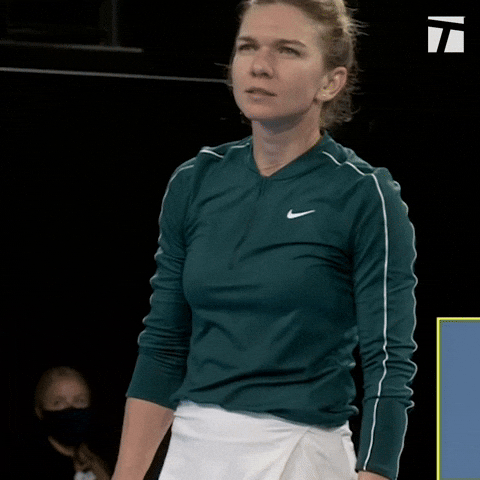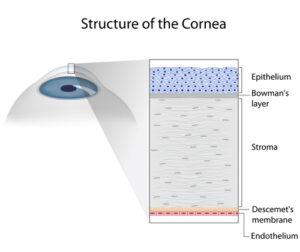Have you ever considered getting LASIK? LASIK is a popular elective procedure, and for a good reason.
The vision correction procedure is safe and effective and can give you total visual freedom from glasses and contact lenses. If you’ve ever thought about having LASIK, you’ve probably wondered if you qualify.
The good news? Most people who wear glasses or contacts to correct a refractive error make great LASIK candidates. Around 85% of patients who have a LASIK consultation find out they are good candidates.
But what makes you a good candidate for LASIK? Keep reading to learn what a good LASIK candidate looks like and if you may be one!
Over 18

While you’re still growing, your eyesight is still subject to change. If you’re considering LASIK, you must be at least 18 years old for the procedure to be effective.
It’s not a matter of LASIK being dangerous if you get it before you’re 18, but there’s a good chance your eyesight will change after it. If that occurs, you’ll significantly diminish LASIK’s efficacy.
While LASIK is permanent, it can only correct refractive errors that you currently have. If your prescription changes after you have it, you may have to wear glasses and contacts again to see.
Many LASIK surgeons prefer patients in their mid to late twenties to avoid this problem. You’ll need to be 18 or older to get LASIK and have a stable prescription for the best results.
Although there’s not technically an age limit on LASIK, if you’re dealing with presbyopia and are in your forties, LASIK may not be the best procedure for you. You may need to consider an alternative like RLE if your visual problems go beyond refractive errors. Your eye doctor can discuss these in further detail during your LASIK consultation.
Stable Vision

Before having LASIK, your prescription must remain the same for at least one year. A stable prescription that hasn’t changed for a year or more indicates that your vision is sound and isn’t likely to change significantly after vision correction.
Some surgeons even prefer your vision to be stable for at least two years. The more stable your sight is, the more effective your procedure will be, and the better your results will be.
Eyes in Good Health

You shouldn’t have any eye conditions besides a refractive error to have LASIK surgery. If you have a treatable eye condition, you must have it under control or already receive treatment before you can have LASIK. Even minor conditions, like dry eye syndrome, can interfere with the healing process.
As part of your LASIK evaluation, your eye doctor will assess your tear quality to ensure you can heal well after having LASIK. If your tear quality is lacking, they’ll recommend treatment.
Some patients can treat dry eyes using simple home remedies, nutritional supplements, and over-the-counter medication. Once your dry eye is under control, you may be able to have LASIK surgery safely. Talk to your eye doctor to determine if you’ll be a good LASIK candidate after you can control your dry eye symptoms.
Good Health

To have any surgery, no matter how minor, you should be in good health. For LASIK, you shouldn’t be pregnant or nursing.
You also shouldn’t have autoimmune conditions that may affect your healing ability while you recover after LASIK. However, some medical conditions may not prevent you from having a safe and effective procedure.
Your medical history will be part of your LASIK evaluation so your ophthalmologist can tell you if any of your conditions may interfere with undergoing a vision correction surgery.
A Refractive Error Within Acceptable Limits

LASIK is an incredible procedure, but it does have some limitations. Your prescription must be within the acceptable treatment limits to undergo the procedure.
However, LASIK can correct refractive errors to a very high degree. Your prescription can’t be higher than -11.00 D for nearsightedness, +5.00 D for farsightedness, and 5.00 D for astigmatism.
Appropriate Corneal Thickness and Pupil Size
Having LASIK involves reshaping the cornea to correct refractive errors. The cornea is the clear, frontmost part of the eye.
A crucial procedure component is your LASIK surgeon creating a flap from the top of the cornea and using an excimer laser to sculpt the tissue under the flap to correct your refractive error. The flap is then replaced, where it acts as a natural bandage as your eye heals.

The corneal flap is what allows LASIK patients to see immediate visual improvement. It also provides an easy recovery.
However, your cornea must be thick enough to accommodate the corneal flap. If it’s too thin, creating a flap is not safe.
Most people have thick enough corneas, but some have thinner corneas. You’ll have your corneal thickness measured during your evaluation.
Similarly, if your pupils are too big, LASIK surgery can cause issues with your night vision. Like your corneal thickness, your pupil size will be measured during your LASIK evaluation.
If your corneas are too thin or your pupils are too big, you may still be able to have an alternative vision correction procedure. Talk to your eye doctor to learn more about these alternative options.
Realistic Expectations

Every LASIK patient needs to have the right expectations before they improve their sight. LASIK can correct your vision to an incredible degree, and 95% of patients achieve 20/20 vision or better.
But there’s no 100% guarantee that LASIK will be fully effective for you. Also, while LASIK is low risk, any surgery has some risks.
Talk to your ophthalmologist to fully understand the risks and potential complications before you undergo LASIK. If you have any questions about the procedure, you can always ask these during your LASIK consultation. It’s always a good idea to be as well-informed as possible before any procedure!
Are you searching for LASIK Eye Surgery in San Antonio, TX? Why not schedule your LASIK consultation at South Texas Eye Institute in San Antonio, TX, today? You have nothing to lose and everything to gain!

